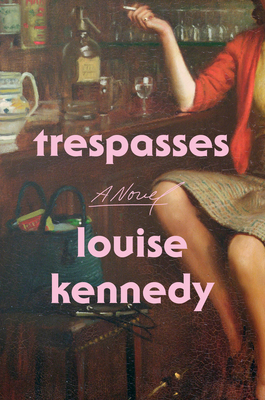I read somewhere that Kennedy inserted the romance into Trespasses to make the political and social environment of her childhood palatable to readers. If that is so, I personally found the political and social parts more interesting, although the romance seems to take over the novel. However, the addition of the romance helped create the extremely touching ending.
Cushla is a Catholic schoolteacher who helps out at her brother’s pub in 1970’s Northern Ireland. One day Michael Agnew comes into the pub. He is nearly twice as old as she is, a Protestant, married, and a lawyer. She is immediately attracted to him even after she finds out he’s known as a womanizer. Soon he invites her to teach a group of his friends Irish, which leads to an affair.
At school, the children pick on one of her students, an eight-year-old named Davy McGeown, who is poor and who has a Catholic father and a Protestant mother. The family is threatened at home, and soon after Davy’s father finally gets a job, he is beaten mercilessly and left a cripple. Even the principal of the school treats Davy and the family badly, and there are hints of potential child abuse in the attentions toward Davy from the local priest. Cushla begins trying to help out Davy and his family, including his sullen older brother, Tommy.
Although Cushla’s family has successfully stayed out of the internecine conflict and serves people of both religions at the pub, things begin to change for them.
For quite a while that I was reading this novel, I was only mildly interested in the main story line but fascinated with the other things that were going on. However, towards the end, I was completely drawn in and found the ending particularly touching.


I have a copy of this because it was the eventual winner of the literary prize I helped judge last year (the McKitterick Prize), but I haven’t felt drawn to it — I don’t really like reading about the Troubles. It’s had such wide acclaim, though.
I was interested in the Troubles, but it doesn’t go into any detail about them, it’s more an atmosphere. It was more about the romance. That’s cool that you got to judge the McKitterick Prize. How do you get to do something like that?
This was my third year judging it. Unfortunately, I only get to assess the unpublished manuscripts that are submitted; I’d much prefer to be judging published books. I got into it via a friend of a blogging friend.
Yes, the published books would be better.
Though I did enjoy it overall, I knew I hadn’t loved this quite as much as a lot of people, but couldn’t remember why so had to check my review. Looks like I agreed with you – I said “the love affair got far more attention than it should have, and the politics were relegated too far into the background”.
Exactly